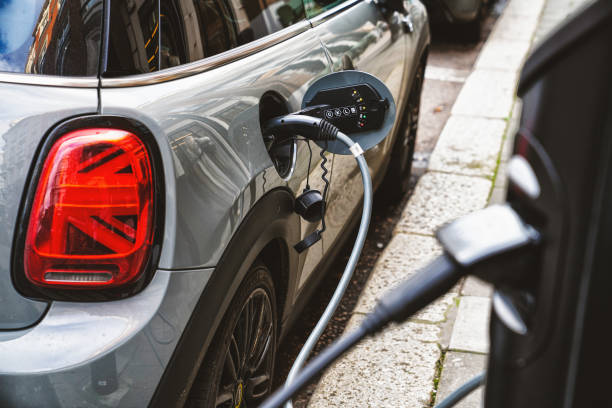'There is no reason to terminate the auto tariff agreement with Brazil'

On July 17 of last year, the Ministry of Foreign Trade notified Brazilian authorities of its intention to discontinue the "zero-tariff" agreement for vehicles from that country as of October 13 of this year. As a result, Colombia will impose a new 16.1% tax, which would immediately increase the final price of vehicles from that country to local consumers.
Initially, the agreement between Colombia and Brazil was an annual quota of 50,000 vehicles with zero entry tariffs, renewable every two years. This resulted in a cascade of high-volume models belonging to brands with factories in that country, such as Toyota, VW, Chevrolet, and Fiat, which since the signing of the agreement have taken advantage of this provisional FTA to offer products with attractive features and advantageous prices.

Reference image. Photo: iStock
We asked Eduardo Visbal, Vice President of Foreign Trade at Fenalco, what the status of this pact is four months before the deadline to halt or extend it, and what the real consequences will be if the former prevails.
As the deadline set by the National Government to "get off the bus" with the tariff agreement reached with Brazil approaches, what's the status of the negotiations between the two countries?
The current situation is one of complete stagnation. To date, no significant progress has been made in the bilateral negotiations. Although Brazil submitted a renegotiation proposal to maintain the current agreement, the Colombian government did not consider the proposal viable or appropriate. Consequently, Colombia has not responded with a concrete counterproposal or shown any willingness to engage in formal dialogue. Time is running out, and if action is not taken soon, there is a risk that the agreement will be automatically canceled, which would have negative consequences for both the Colombian automotive sector and the bilateral trade relationship.
What is Brazil's argument regarding this decision by the Colombian government?
Former Minister Reyes's denunciation of the agreement was surprising and unilateral. The Colombian government's central argument for terminating the agreement is based on the existence of a trade deficit with Brazil. However, the reality is that Colombia maintains negative trade balances with multiple trading partners, not just Brazil. Therefore, using this reason to undo a bilateral agreement is inconsistent and sends a contradictory message to the international community regarding the stability of Colombia's trade commitments.

Reference image Photo: iStock
Why does the National Government insist on ending the agreement? What have they said about it? How receptive have they been to the automotive industry's recommendations regarding this decision?
The main argument is the issue of the trade deficit with Brazil. We in the automotive sector have encountered an unreceptive attitude from the government. There has been no evidence of a substantive strategy to support this decision, nor of a technical assessment of the potential impact of terminating the agreement.
What has been Fenalco's role vis-à-vis the authorities and the sector?
Fenalco, representing 98% of vehicle importers in our country, has taken an active role as a spokesperson, leading the discussion from the private sector. For almost a year now, we have held multiple meetings, both in Colombia and Brazil, with government authorities, seeking to build bridges of dialogue, and also in coordination with our colleagues from the Brazilian automotive sector association, Anfavea. We held meetings with Deputy Minister Quintero and Acting Minister Rusinque , but so far we have not received clear signals of willingness to engage in dialogue from the government.
We know, from unofficial information, that the government has proposed to Brazil the possibility of installing an automotive plant in Colombia as a condition for maintaining the agreement. Although it may be attractive in the long term, it is not viable in the short or medium term, given the magnitude of the investment, the legal uncertainty, the size of the market, and the prohibited performance requirements. In parallel, some manufacturers are evaluating which auto parts could be purchased locally, but these industrial processes require years of preparation. Meanwhile, Fenalco and Anfavea are preparing a letter addressed to the trade ministers of both countries to formally request that negotiations be resumed and avoid a definitive rupture of the agreement.
What is the share of brands originating from Brazil in total vehicle imports?

Reference image. Photo: iStock
During 2024, Colombia imported more than 173,000 vehicles, of which approximately 34,000 units came from Brazil, representing 20% of the total vehicles imported into the country. Among the brands with the highest participation in these imports are Renault, with 23% of the total vehicles imported from Brazil; Toyota , with 22%; Porsche Colombia ( VW ), with 21%; General Motors ( Chevrolet ), with 16%, and Automotriz Italoamérica ( Fiat ), with 5%. These figures reflect the importance of Brazilian supply within the supply of vehicles to Colombia. Furthermore, many of these models are highly valued by Colombian consumers for their quality-price ratio and their availability in versions adapted to local market conditions.
What would be the real impact on these brands and models if preferential import conditions from Brazil were eliminated?
The main consequence would be a significant increase in import costs due to the loss of tariff benefits, which would be passed on to the final consumer price. This would clearly reduce the competitiveness of these brands compared to others that do have agreements in place with Colombia. This means that brands will likely have to reconfigure their portfolios and possibly suspend shipments of certain models, affecting the variety of products on offer and causing delivery delays. Dealerships, workshops, after-sales services, and the distribution chain that depends on these imports could also be affected.
This situation would negatively impact both direct and indirect employment linked to the sector.

Chevrolet Silverado Trail Boss Z71 Photo:
A crucial consideration, which we have clearly stated from the outset, is that this measure will not translate into increased revenue for the Colombian government. What will likely happen is that manufacturers will stop importing that volume of vehicles from Brazil and, instead, will seek to source their products from other countries with which Colombia does have current trade agreements. Therefore, there will be no additional revenue from tariffs, but rather a realignment of the origin of imports, with potential additional logistical and operational costs, but without significant fiscal benefits. In other words, there will be no increase in tax revenue, but there is a risk of discouraging trade with one of our main partners and affecting local consumers and businesses without any clear gains for public finances.
What percentage of total bilateral trade between Colombia and Brazil is vehicle import?
According to figures available from Dane (National Autonomous University of Buenos Aires) and LegisComex (LegisComex), at the end of 2024, vehicle imports from Brazil represented approximately 10% of total bilateral trade between Colombia and Brazil in 2024. This percentage varies year by year depending on exchange rate conditions, domestic demand, and the dynamics of trade agreements. However, it is a significant component of the bilateral trade balance, not only due to the value of the units but also due to its impact on the production and services chain.

In-person car auction in Bogotá. Photo: Auctions and Commerce
Vehicle sales are experiencing growth this year. What's driving this surge? Will it continue?
The automotive sector has shown signs of recovery so far this year. This growth is due to several factors, such as a stable exchange rate, which gives importers confidence; lower interest rates, which have facilitated access to vehicle credit; and greater consumer confidence in the economy as a whole. Despite these positive factors, growth is still moderate and fragile. There are risks that could affect the trend, such as trade policy decisions that introduce uncertainty (such as the elimination of the agreement with Brazil ), new taxes on the sector, or global economic events that affect the logistics chain. Therefore, it is essential to provide stability, legal certainty, and clear rules to the market.
What's the status of the homologation issue after the postponement? Will the government change its course or is it just continuing to stall the issue?
The issue of technical regulations is still under evaluation by the Government, and both Fenalco and the rest of the automotive industry worldwide are concerned that the Government has not yet clearly defined whether it will implement a structural change or simply continue extending the deadlines for their implementation. The lack of certainty in this regard and the impact on the FMVSS (Federal Motor Vehicle Safety Standards), which certifies the suitability of vehicles and their components, is a concern for importers, as without consolidated technical regulations, there is a risk of hindering the entry of new models into the country or making the process more expensive.
Fenalco insists on the need for a technical framework that is stable, up-to-date, in line with international standards, and accepts FMVSS standards.
José Clopatofsky - Director of Motor Magazine
eltiempo





